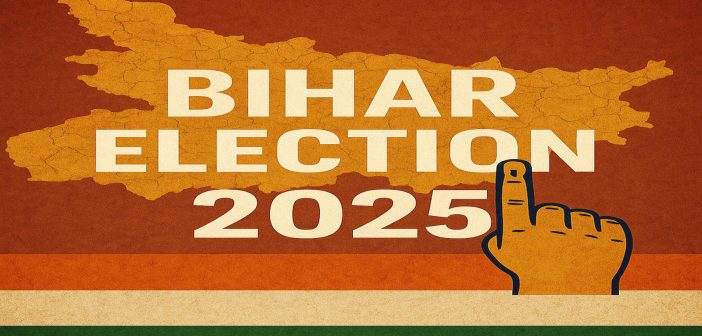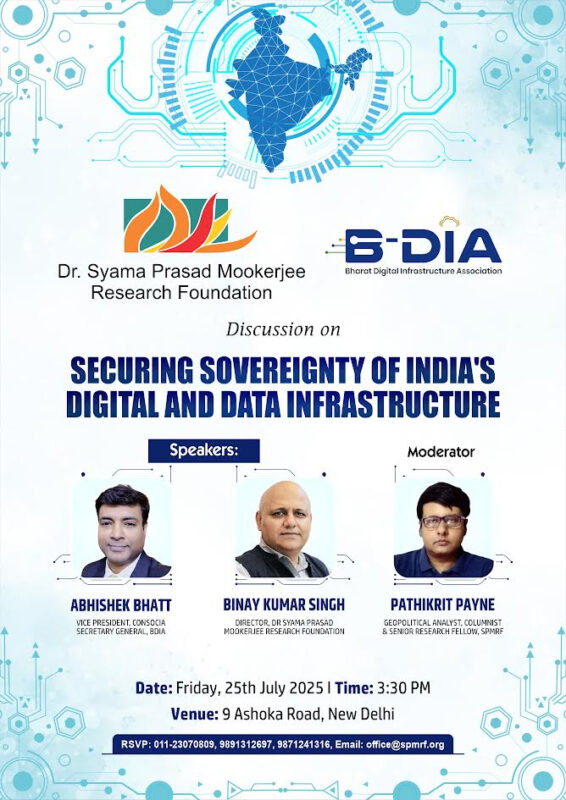The ongoing Special Intensive Revision (SIR) of electoral rolls in Bihar is a critical exercise that directly contributes to strengthening democracy and eliminating “fake voters.” This meticulous process, while facing certain challenges and generating political debate, is fundamentally designed to uphold the principle of “one person, one vote” and ensure the sanctity of the electoral process.
Here’s how the Bihar electoral roll revision helps strengthen democracy and eliminate fake voters:
- Purification of the Electoral Roll: Directly Targeting Fake Voters
The primary objective of the SIR is to create an accurate and authentic voter list. This involves a systematic process of identifying and removing various categories of “fake” or ineligible voters:
- Deceased Voters: Over time, names of individuals who have passed away can remain on the electoral rolls. These “ghost voters” present a clear opportunity for fraudulent voting. The house-to-house verification by Booth Level Officers (BLOs), coupled with cross-referencing with death records (where available), aims to identify and remove these names, preventing their misuse. The ECI’s recent report indicating that over 12.5 lakh electors in Bihar are “probably deceased” highlights the scale of this issue and the necessity of the revision.
- Shifted Voters: Due to urbanisation, migration for work or education, and other reasons, individuals frequently change their residence. If their names are not removed from their old constituency and re-registered in their new one, they might appear as duplicate entries across different locations, creating the potential for multiple voting. The SIR specifically targets individuals who have “shifted permanently,” aiming to rectify such duplications.
- Duplicate Entries: Beyond shifted voters, technological or administrative errors can also lead to the same individual being registered multiple times within the same or different constituencies. The ECI’s focus on a unique EPIC number and the use of platforms like ERONET (Electoral Roll Management) are designed to identify and eliminate these duplicate entries, ensuring that each eligible citizen has only one vote. The identification of nearly 5.8 lakh electors in Bihar enrolled at multiple places underscores the importance of this aspect.
- Ineligible Persons (Non-Citizens, Underage Voters, etc.): The Representation of the People Act, 1950, clearly defines who is eligible to be a voter (Indian citizen, 18 years or above, ordinarily resident in the constituency). The revision process is meant to identify and remove individuals who do not meet these criteria, such as non-citizens or those below the voting age, thereby preserving the integrity of the electorate. While this aspect is particularly sensitive and has raised concerns about “de facto citizenship tests,” the stated legal basis of the ECI’s action is to adhere to constitutional provisions.
- Enhancing the Credibility of Elections:
- Preventing Electoral Malpractices: An unpurified electoral roll, teeming with fake or duplicate entries, is an open invitation for electoral fraud, including impersonation, booth capturing, and manipulating vote counts. By cleaning the rolls, the ECI significantly reduces the scope for such malpractices, making it harder for unscrupulous elements to hijack the democratic process.
- Ensuring Genuine Representation: When elections are conducted on the basis of a clean and accurate voter list, the results more truly reflect the will of the legitimate electorate. This means that the elected representatives genuinely hold the mandate of the people they are supposed to serve, thereby strengthening the democratic legitimacy of the government.
- Building Public Trust: A transparent and rigorous revision process instils confidence in the minds of citizens. When they see that efforts are being made to remove bogus voters and ensure fairness, their faith in the electoral system grows. This trust is fundamental for people to participate actively in elections and to accept the outcomes, even if their preferred candidate or party doesn’t win. Without this trust, democracy can falter.
- Strengthening the “One Person, One Vote” Principle:
The foundation of any democratic system is the principle of “one person, one vote.” An accurate electoral roll is the bedrock upon which this principle stands.
- Equal Value of Every Vote: When fake votes are eliminated, every genuine vote cast carries its intended weight. It ensures that the collective voice of the eligible citizenry is heard clearly and is not diluted or distorted by illegal entries. This makes the act of voting more meaningful for individual citizens.
- Fair Competition: For political parties and candidates, a clean electoral roll ensures a level playing field. They can focus their campaigning efforts on genuine voters, knowing that the outcome will not be swayed by fraudulent practices. This promotes fair competition and prevents a situation where winning elections depends more on exploiting loopholes in the voter list than on garnering legitimate public support.
- Promoting Accountability and Transparency:
- Involvement of Political Parties: The ECI’s practice of sharing details of “untraceable” voters with district presidents of political parties and their booth-level agents, along with the provision for filing claims and objections, is crucial for transparency. This allows political parties, as key stakeholders, to scrutinize the data, raise legitimate concerns, and help identify errors or potential wrongful deletions. While this can lead to political contention, it is a vital check and balance.
- Public Scrutiny: The publication of the draft electoral roll-on August 1, 2025, and the subsequent period for claims and objections empower individual citizens to verify their own entries and those of their family members. This public scrutiny is a powerful mechanism for ensuring accuracy and holding the electoral machinery accountable.
While the process is challenging, particularly with concerns regarding the “untraceable” voters, the need for robust documentation for some categories, and the situation of migrant workers, the fundamental aim of eliminating fake voters is vital for Bihar’s democratic health. The ECI’s commitment to due process, including hearings for objections and allowing for submission of documents during the claims period, is critical to ensure that no genuine voter is disenfranchised in the pursuit of a clean electoral roll. Ultimately, a purified voter list is a non-negotiable requirement for free, fair, and credible elections, which are the very essence of a strong and vibrant democracy.
(The views expressed are the author's own and do not necessarily reflect the position of the organisation)


